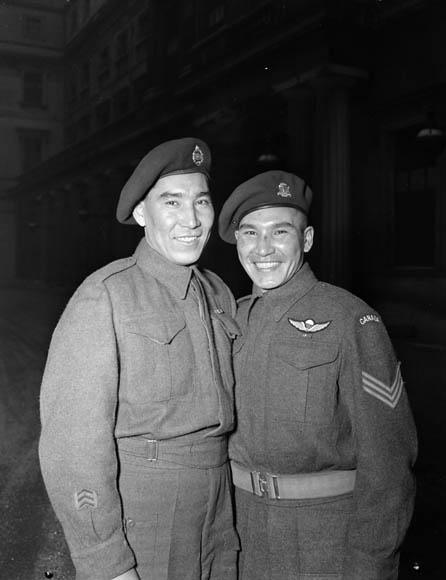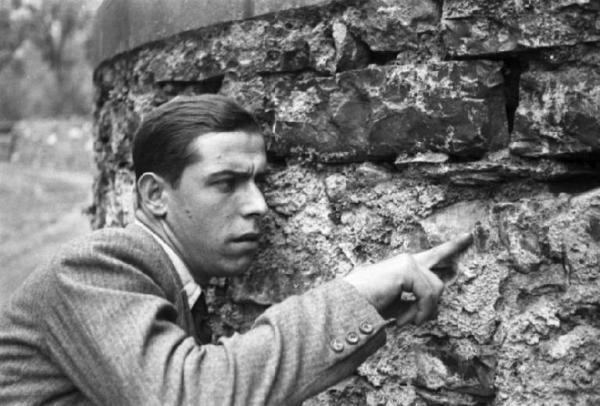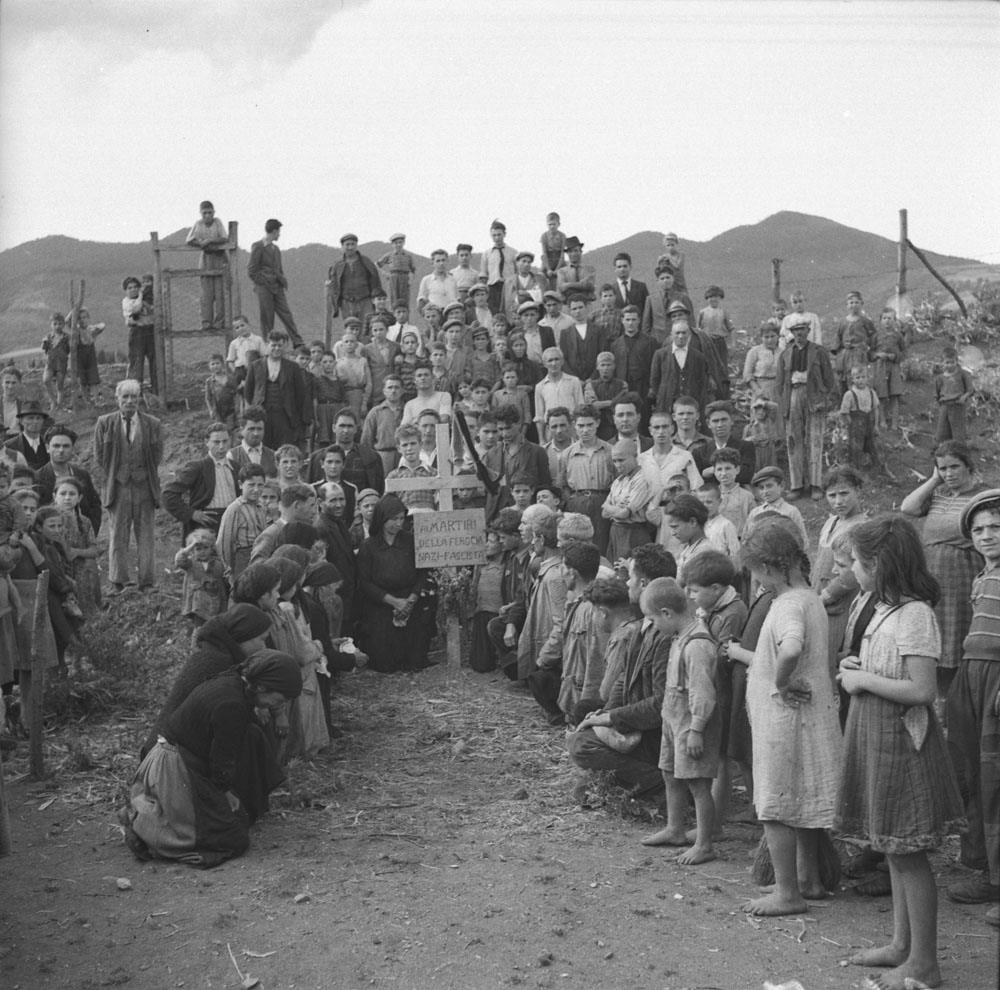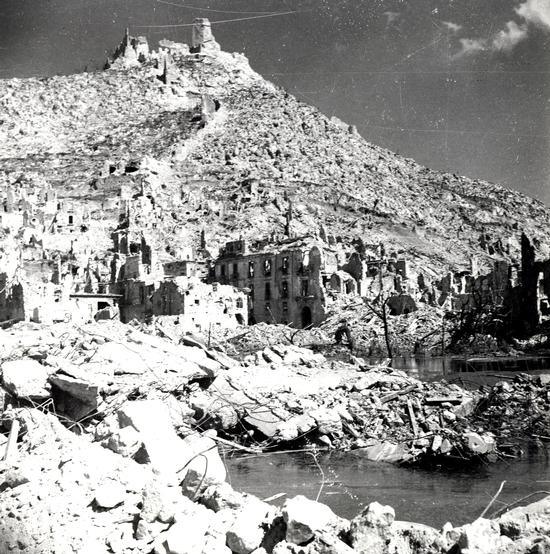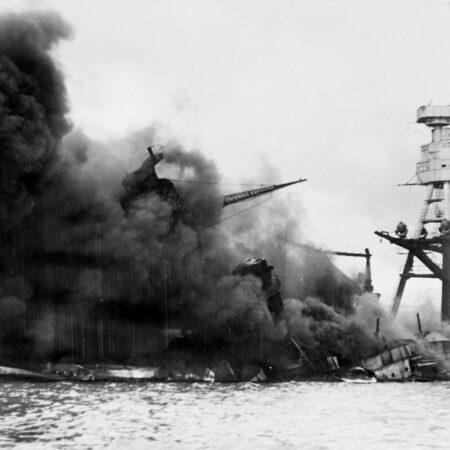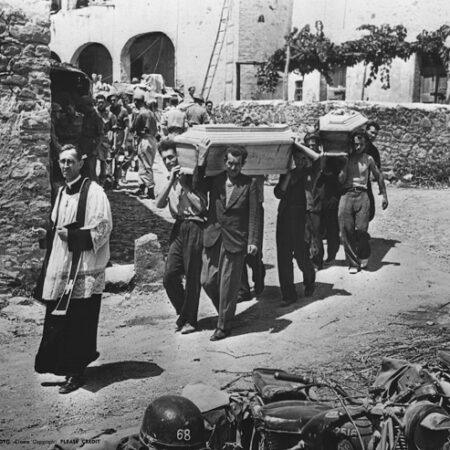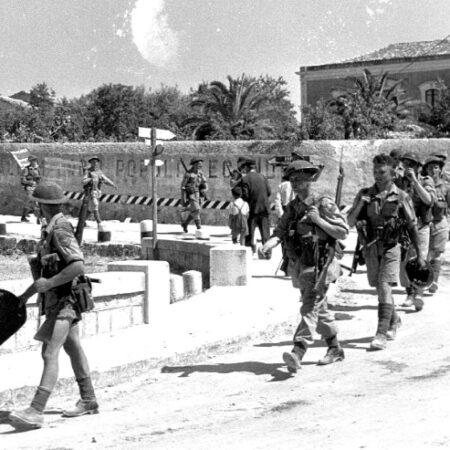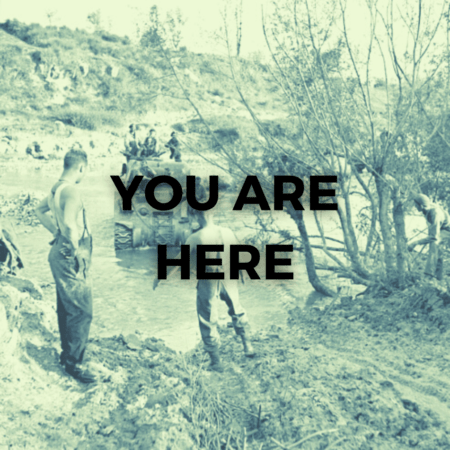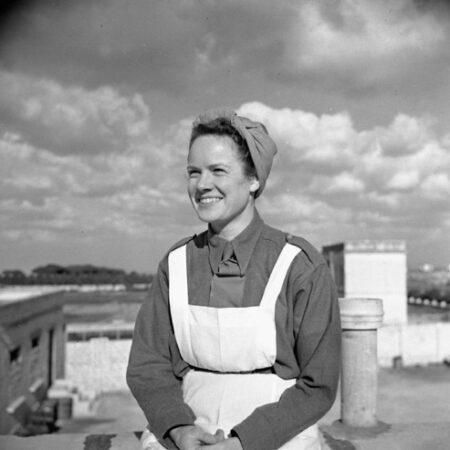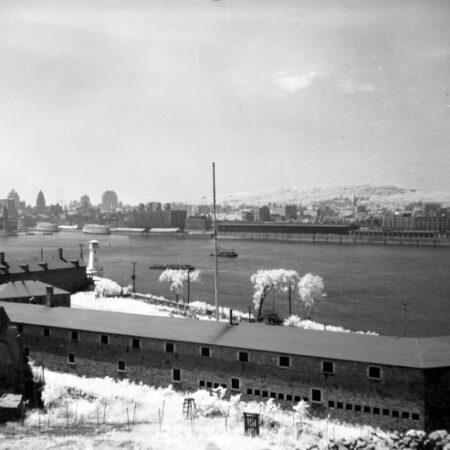THROUGH VINES AND MINES: THE CANADIAN ARMY IN ITALY
THE NEXT BATTLES BEGIN
At the very end of Operation Husky, the Germans launched a vast evacuation plan. Despite the Allies’ attempts, the German army pulled off the operation and saved almost 100,000 soldiers with their vehicles and equipment. This success had terrible consequences for the Allies, as the enemy’s defences in Italy were greatly strengthened and the fighting promised to be more difficult than expected.
Paul Triquet:
courage and boldness
After lying about his age, 17-year-old Triquet enlisted with the Royal 22e Régiment in 1927. Triquet quickly rose through the ranks to become captain of C Company. In Italy, he led his men with great success, particularly during the capture of Casa Berardi. He showed courage and daring even under heavy German fire, as he told his men, “There are enemy in front of us, behind us and on our flanks. There’s only one safe place—that is on the objective.” For his actions at Casa Berardi, Paul Triquet was awarded the Victoria Cross and became the only French Canadian to receive this honour during the war (source: Musée du Royal 22e Régiment).
Tommy Prince:
elite soldier of the First Special Service Force
From a family with a strong military tradition, Tommy Prince immediately tried to join the Canadian army when the war broke out in September 1939. Due to his Indigenous background, Prince was rejected many times before finally being accepted in June 1940. The reconnaissance and marksmanship skills that he developed as a hunter for his community were quickly noticed when he volunteered for the First Special Service Force, a secret unit of the best troops from the American and Canadian military. During his service, Prince made a mark on the fronts in Italy, France and, years later, Korea.
Mitchell Sterlin:
fighting fascism
Born in 1921 to a Jewish family that had settled in Montreal, Mitchell Sterlin was destined to have a brilliant career after becoming one of the few Jews to be accepted at McGill University’s Faculty of Medicine. However, in 1942, Sterlin enlisted in the Canadian Army and became a lieutenant with the RCR. Sterlin’s life was nevertheless affected by antisemitism. On the way to Sicily, his fellow officers asked his captain, Ian Hodson, to oust Sterlin from his post because he was Jewish. Fortunately, the explosive response silenced this bigotry. Sterlin went on to perform glorious feats during the campaign.This picture comes from Mitchell Sterlin’s graduation photo from his yearbook (source: Veterans Affairs Canada).
DISCOVER THE BATTLE OF ORTONA IN PICTURES
THE END OF MUSSOLINI
The campaign was a complete disaster for the Mussolini regime. During the invasion of Sicily, defeat was certain as the Italian army became totally overwhelmed. On July 25, 1943, Mussolini was deposed and placed under arrest. On September 3, Italy signed the Armistice of Cassibile with the Allies. In retaliation, Germany sent its soldiers to attack the Italian army all over Europe. At the same time, Mussolini was freed by a German commando team and set up as leader of the Italian Social Republic, a puppet state in the north of the country.
When the Allies launched its spring offensive in 1945, Mussolini’s republic was in full collapse. The end of the war was imminent, and Mussolini and his guards tried to leave the country. On April 27, the deposed dictator was captured by Italian partisans and executed just moments later. The next day, the bodies of Mussolini and his guards were paraded through the streets to the jeers of the crowd. After decades of bloody rule, the Italian people were finally liberated.

